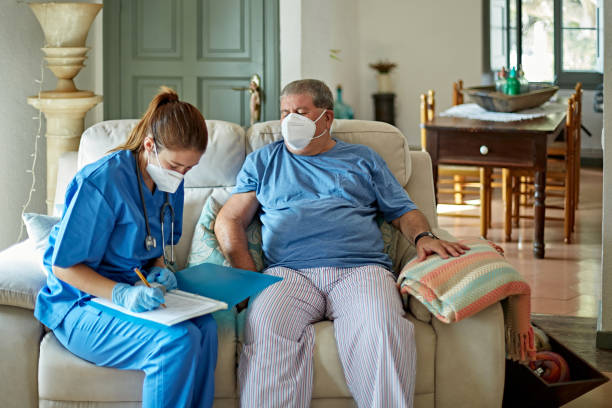When It’s Time To Consider Home Care
When elder loved ones reach a point in life when they want to live independently but can no longer adequately care for themselves, what typically happens is someone in the family steps up and provides the necessary help. It’s a common situation. It’s estimated that over 40 million families in the United States are caring for a family member over 50 years of age with close to 15 million of them giving care to someone with Alzheimer’s Disease or dementia.
Provide Care With Your Heart And Head
There’s no question that when possible, family caring for family is the best solution to issues with aging. Unfortunately, there comes a time when family caring for family is not the best answer – for the senior in question or the caregiver. The physical and mental well-being of a senior can transition to a point where the level of care needed is beyond the capabilities of the family member. Family caregiver struggles must also be considered because often the level of care a senior requires interferes with the caregiver’s own family or work responsibilities.
When a family caregiver realizes they need help watching over a loved one, many feel guilt or a sense of failure on their part. That’s their heart talking to them and it’s an entirely natural feeling. They want to do more, but for various reasons, can’t because they’ve hit the limit of their capabilities. A family caregiver should never feel that they are letting their loved one down. Instead, they should listen to the logic their brain is speaking. What the brain is saying is “you’ve done your best, now continue doing your best by getting the extra help you and your loved one needs.”
Signs That Situations Have Changed
There is no definitive point that shouts “it’s time to hire a home care professional.” Every person and every situation is different, but there are certain signs that indicate when outside help is necessary. Here’s some examples:
- If you notice the senior in your care is not bathing, brushing teeth, shampooing hair or wearing a clean change of clothes as often as they did in the past, it’s probably because doing these simple daily living activities are becoming a struggle.
- The house becomes more cluttered. You will notice that mail is piling up, the floors aren’t vacuumed or mopped as regularly as in the past and dirty dishes, pots and pans sit in the sink or dishwasher.
- The elder isn’t as mindful of social and medical appointments and medications are sometimes taken late or not at all, a situation that could cause unnecessary and sometimes serious medical problems.
- Behavioral changes can occur when the elder become more withdrawn, less active and moods swing back-and-forth unpredictably.
- Meal preparation and eating habits become erratic. The types of foods they prepare and eat deviate greatly from what they were in the past and weight changes can also occur that are a red flag for intervention.
Avoid Caregiver Burnout
If you are a family member watching over a loved one, remember you need to care for yourself first, regardless of the circumstances. Putting your own physical and mental well-being at risk helps no one – not you and not your loved one – so do the right thing and seek help when the burdens of care become too great.
There are many options for senior care ranging from occasional help around the house to more advanced levels of care that require professional home health assistance. In most cases, getting your loved one the help required is available at little or no cost, depending on their health insurance coverage plans. Almost all home care and home health agencies accept a variety of plans including Medicare, Medicaid, and other supplemental plans. A simple call to any of the many agencies providing in-home care will answer your questions about the type of help they can provide and how the costs will be managed.
Share Your Caregiving Role
No one becomes a family caregiver by choice. It’s a role that just happens. You never expected it, never prepared for it and you never imagined how difficult it could be to care for someone you love. As much as we would like, none of us are superhero’s that can be everything to everyone all the time. That’s just not realistic. What we can be, though, is a caregiver that shares the burdens when the weight becomes too much to carry individually.
Asking for and getting help to care for a loved one is a sign of strength, not weakness. Sharing your caregiving role is the always the right thing to do when the time is right. 

